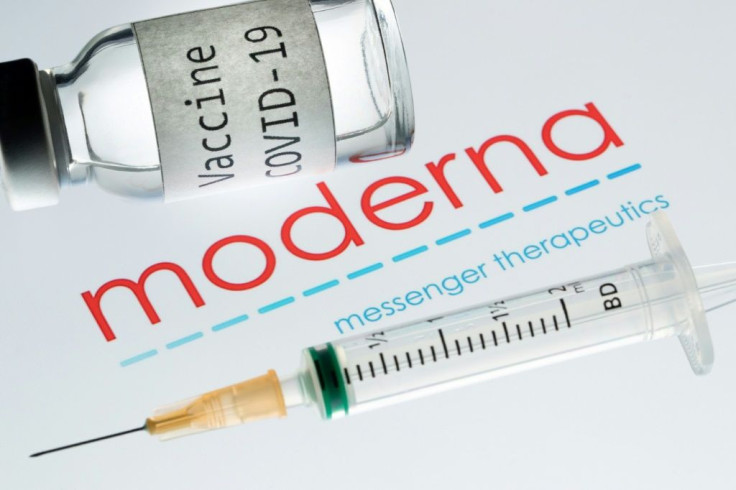Where Will Moderna Be In 5 Years?
Can you name a company that's developing drugs for rare inherited illnesses, blocked arteries, and vaccines for infectious diseases you've never heard of? Since you clicked on this article, you already know that I'm talking about Moderna, (NASDAQ:MRNA) and not some pharma giant like Pfizer.
That's right, by late 2025 Moderna should have its hands full with its efforts to move a selection of innovative treatments through their final clinical trials. In fact, its shareholders might be even more bullish about the company than they are today, with its coronavirus vaccine candidate on the verge of regulatory approval. Accurately predicting the future is never easy, but this company's growth trajectory seems like it could accelerate wildly over the long term, though there might be a few slow patches along the way.
How durable will coronavirus vaccine revenue be?
Any forecast about Moderna's future has to start by addressing the potential scale of its coronavirus vaccine sales. It still needs to get an emergency use authorization from the Food and Drug Administration (FDA) for mRNA-1273, which is not guaranteed. After that, hopefully, would come full FDA approval. But if the vaccine confers long-term immunity, its sales will be limited. Once most people are protected against the coronavirus, the market will largely dry up. On the other hand, if the vaccine provides a smaller window of protection, the company will have a reliable cash cow for quite some time.
Right now, there's only enough evidence to say that mRNA-1273's protection lasts for at least three months, even though it appears to be 94.1% effective at preventing infection. Effectiveness like that bodes well for Moderna's other projects that use the same scientific approach, harnessing the power of messenger RNA. But until time delivers more complete answers, the conservative assumption for investors to make is that the protection the vaccine provides will be both effective and durable, so individuals only need one set of doses.
Some vaccine developers such as AstraZeneca have committed to selling their COVID-19 vaccines at cost while the pandemic continues. Moderna hasn't. So it's possible that the market will react favorably to news that might seem negative, such as if the vaccine is found to provide immunity only for a season or two. Either way, the company is still going to make a large profit in the short term.
Pipeline progress will make Moderna into a monster
Moderna's development pipeline will be significantly more mature in late 2025 thanks to the progress of trials and the influx of revenue that should hit in 2021. This year so far, it has taken $1.2 billion in revenue from customer deposits for its vaccine, not to mention $232.7 million in revenue derived from public funding for the development effort.
Several of its vaccine programs, among them its cytomegalovirus vaccine, maybe on the verge of commercialization at that point -- if they aren't on the market already. In particular, the company's influenza vaccine will be closely watched, especially if it demonstrates superior efficacy compared to the current market leaders. But as always in the pharma sector, there's no guarantee that any given treatment will earn regulatory approval. Most don't.
That said, Moderna's other projects that could be approaching completion in five years' time will be even more promising in terms of providing value to shareholders. Its coronary heart disease (CHD) treatment AZD7970, being developed in conjunction with AstraZeneca, aims to treat the leading cause of death in the U.S. Given that existing CHD therapies like Lipitor have raked in billions of dollars, if AZD7970 proves effective, it too could be a blockbuster. Expect Moderna's stock price to balloon if the project nears completion -- the revenue it could make with this drug might surpass its coronavirus vaccine sales in the long run.
Management also has its sights on the oncology market. The "personalized cancer vaccine" currently in development is one of its most ambitious projects, and it's being investigated in phase 2 clinical trials for head and neck squamous cell carcinoma. Today, the market for cancer vaccines is worth an estimated $4.6 billion, but by 2025, it may be worth as much as $10.1 billion. Eventually, personalized cancer vaccines may be used to treat a wider variety of cancers. If the company's first program pans out, Moderna will be positioned as a leader in personalized medicine. But, it'll have to split the proceeds evenly with Merck, its collaborator. More importantly, it'll also initiate a handful of follow-up trials to investigate whether the vaccine is effective against other cancers.
The new revenue streams from oncology products would both enhance its value and provide more fuel for its broader research and development efforts. But, again, all of that rests on how the ongoing trials turn out, so investors should temper their expectations.
Competitors will challenge Moderna in the mRNA market
Moderna isn't the only company that's working on mRNA medicines. The coronavirus vaccine Pfizer and BioNTech developed uses that technology too, for example. Now that the approach has been proven effective in the context of infectious diseases, these companies could prioritize developing additional rival products. That could threaten Moderna's profit margins, and it might crimp its revenue growth.
Nonetheless, in five years, I anticipate Moderna will be sitting on more than one gold mine. Investors looking for an opportunity to buy should take note: Don't expect this stock to be trading at a discount anytime soon.

This article originally appeared in the Motley Fool.
Alex Carchidi has no position in any of the stocks mentioned. The Motley Fool has no position in any of the stocks mentioned. The Motley Fool has a disclosure policy.





















